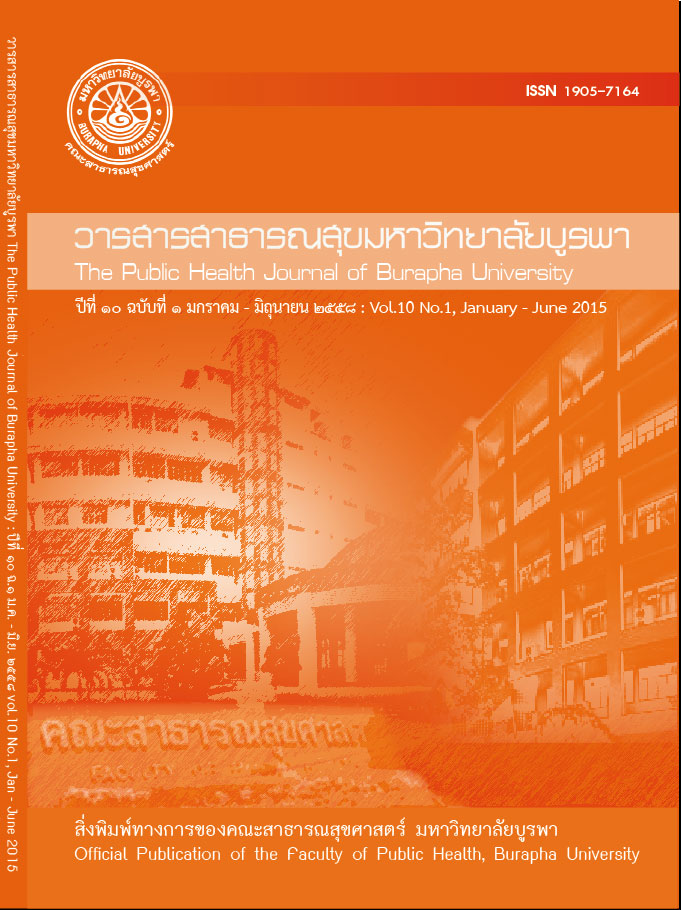A Case Report of Decompression Sickness in Underground Tunnel Worker
Main Article Content
บทคัดย่อ
รายงานผู้ป่วยโรคเหตุลดความดันอากาศในคนทำงานขุดอุโมงค์ใต้ดิน
ธนวัฒน์ ศุภนิตยานนท์*, เสฏฐศิริ แสงสุวรรณ*, วิวัฒน์ เอกบูรณะวัฒน์**
* กองเวชศาสตร์ใต้น้ำและการบิน กรมแพทย์ทหารเรือ ** ศูนย์อาชีวเวชศาสตร์ โรงพยาบาลสมิติเวช ศรีราชา
“โรคเหตุลดความดันอากาศ” เป็นโรคที่มีอันตรายรุนแรงเกิดจากการเข้าไปทำงานหรือทำ กิจกรรมในสถานที่ที่มีการเปลี่ยนแปลงความดันอากาศการทำงานขุดอุโมงค์ที่อยู่ลึกลงไปใต้ดิน เป็นงานในสิ่งแวดล้อมชนิดพิเศษแบบหนึ่งที่คนทำงานมีโอกาสจะต้องเผชิญกับความดันอากาศ ที่สูงขึ้นจากกระบวนการอัดอากาศเข้าไปภายในสถานที่ทำงานโดยโรคดังกล่าวสามารถเกิดขึ้นได้ จากการลดความดันอากาศหลังจากการทำงานดังกล่าวรายงานฉบับนี้เป็นรายงานผู้ป่วยชายไทย อายุ 38 ปีที่ทำงานขุดอุโมงค์ใต้ดินด้วยจอบเสียมและพลั่วในพื้นที่ที่มีการอัดอากาศซึ่งมีความดัน อากาศสูงเท่ากับ 1.8 เท่าของความดันอากาศสัมบูรณ์หลังจากทำงานไปเป็นเวลา 3 ชั่วโมงเมื่อกลับ เข้าสู่ความดันอากาศปกติเกิดอาการชาบริเวณแขนทั้งสองข้างและอาการปวดหน่วงที่ข้อมือขวา ผู้ป่วย ถูกส่งตัวมาบำบัดรักษาด้วยการให้ออกซิเจนภายใต้ความดันอากาศสูงที่กองเวชศาสตร์ใต้น้ำและการบินกรมแพทย์ทหารเรือหลังจากทำการรักษาแล้วผู้ป่วยหายจากอาการชาและปวดได้โดยไม่มีอาการ ทางระบบประสาทตกค้างผู้ป่วยรายนี้เป็นผู้ป่วยที่เกิดโรคเหตุลดความดันอากาศจากการทำงาน ขุดอุโมงค์ใต้ดินที่มีการรายงานไว้อย่างเป็นทางการรายแรกของประเทศไทย
“Decompression sickness” is one of the most serious conditions occurring from work or activity that is related to altered air pressure. Underground tunneling is a job in a special environment that is at risk of exposure to increased air pressure from the process of air compression in the working environment. As a result, disease may occur during the process of decompression after the work has been carried out. This report is about a 38-year-old man employed as nderground tunnel worker who dug the underground earth with hoe, spade, and shovel in a hyperbaric environment of 1.8 Bar. After working for three hours, he experienced numbness on both forearms and a dull-aching pain on the right wrist during the decompression procedure. He was sent to Division of Underwater and Aviation Medicine of the Naval Medical Department to receive hyperbaric oxygen therapy. After an extended course of treatment, all of his symptoms resolved without permanent neurological consequence. This was the first decompression sickness case reported in underground tunneling work in Thailand.

